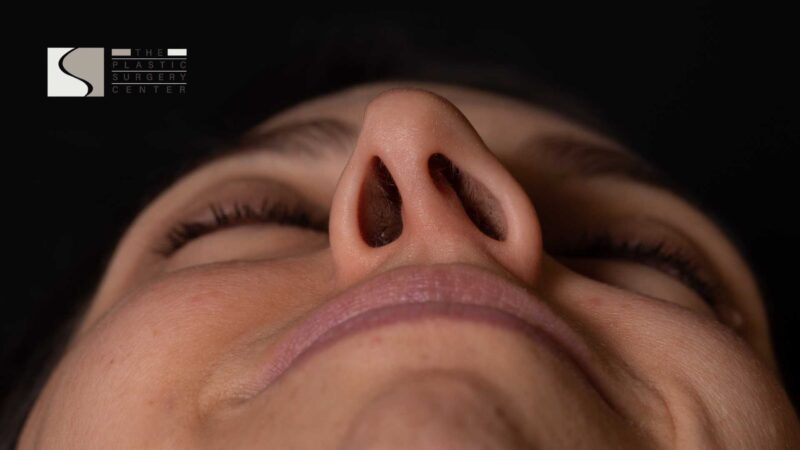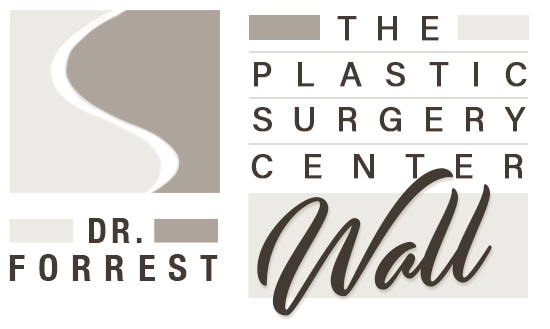One of the most common questions we are asked, as plastic surgeons, is, “Does insurance cover plastic surgery?” Many assert this question when they start considering elective, corrective, or cosmetic surgery. Unfortunately, the answer is not a simple yes or no. Insurance companies will determine if the surgical procedure is considered medically necessary, such as for developmental abnormalities, before covering plastic surgery.
Anything covered by insurance may be subject to the health insurance plan’s deductible. Most patients don’t understand, upfront, that there are alternative payment strategies. Insurance coverage may be provided for the health-portion, but the plastic surgery portion typically falls on the patient.

Is Plastic Surgery Covered By Insurance?
If a patient wants plastic surgery purely for cosmetic reasons, then no, plastic surgery is not covered by insurance. However, there are many instances where a surgical procedure that is technically plastic surgery will also serve a necessary medical purpose.
Additionally, the type of insurance policy the insurance carrier has can significantly impact whether plastic surgery is included. If cosmetic surgery is covered by insurance, you may be among a small group of people who receive plastic surgery at the cost of your insurer.
What Insurance Covers Cosmetic Surgery?
Most health insurance plans will provide insurance coverage for medical procedures. However, a purely cosmetic one will not. Plastic surgery covered by insurance will usually be considered medically necessary due to congenital defects, injuries, or functional impairments. However, different insurance companies have specific policies regarding what plastic surgery procedures are covered by insurance:
Aetna
Aetna may provide insurance coverage for reconstructive procedures if they correct developmental abnormalities or restore function, but elective procedures for aesthetic plastic surgery are not included.
UnitedHealthcare
UnitedHealthcare provides insurance coverage based on medical necessity, approving plastic surgery for functional impairments but excluding elective surgery.
Cigna
Cigna does not provide insurance coverage for plastic surgery procedures for cosmetic purposes, but reconstructive surgery for trauma-related deformities or congenital defects may be included.
Medicare
Medicare does not provide insurance coverage for cosmetic procedures unless they are performed for a medical necessity, such as breast reconstruction after a mastectomy.
Some insurance carriers offer case-by-case coverage for procedures that serve both aesthetic and medical purposes. Patients undergoing elective plastic surgery can also explore specialized insurance policies from companies like CosmetAssure and Aesthetisure to cover potential complications. It is important to consult your insurer during the initial consultation to understand plastic surgery costs involved and determine whether the cosmetic procedure is covered by insurance.

Questions that Determine Insurance Coverage for Plastic Surgery Procedures
Most insurance companies use the following questions to decide if they will cover any part of the procedure:
-
Is plastic surgery purely cosmetic?
-
Is the operation for reconstructive purposes?
-
Will the surgery provide an essential function to your body?
-
Will the surgery provide critical value to your quality of life?
Insurance coverage for plastic surgery depends on whether the medical procedure is performed for medically necessity or if it’s a purely cosmetic surgery. Purely cosmetic surgeries are rarely covered by insurance, as they are performed for aesthetic enhancement rather than medical necessity.
However, plastic surgeries that serve a medical purpose, such as reconstructive surgery that corrects developmental abnormalities, trauma, tumors, or functional impairments, may be covered by insurance.
Health insurance plans require proof that plastic surgery is not solely for appearance but is a medical necessity. While cosmetic surgery alters the body for aesthetic reasons, reconstructive surgery restores function or corrects deformities.
Insurance companies have strict guidelines and do not consider self-esteem improvements as a qualifying factor. To determine insurance coverage, patients should consult their insurance company and clarify whether their surgical procedure meets medical necessity criteria.
Cosmetic vs. Medical Necessity
Plastic surgery includes both medically necessary reconstructive surgeries and elective cosmetic surgery procedures, but insurance coverage depends on whether the procedure to be performed qualifies as a medical necessity. Insurance policies rarely cover plastic surgery if it is solely for improving appearance, as cosmetic surgeries do not correct congenital defects, trauma-related injuries, or medical conditions affecting function.
However, reconstructive plastic surgery procedures are often covered by insurance when they restore or repair the body after an injury, developmental issues, or tumors. Board-certified plastic surgeons may recommend facial reconstruction surgery or hand reconstruction surgery for patients recovering from a traumatic event.
Since some plastic surgery procedures involve both reconstructive surgery and cosmetic surgery, it’s important to review your insurance coverage with your insurance provider. Only your insurance company can confirm whether your surgical procedure and the recovery process are covered by insurance.
Cosmetic Procedures Covered By Insurance
Breast Reduction Surgery
We’re often asked, Is breast reduction covered by insurance?
Breast reduction surgery is a plastic surgery that reduces excess breast tissue to alleviate discomfort. Insurance policies may cover plastic surgery if the patient experiences chronic pain, posture issues, nerve damage, or skin irritation that cannot be relieved by non-surgical treatments. Contact our plastic surgeon to learn more about breast reductions in Shreveport.
Rhinoplasty (Nose Surgery)
Rhinoplasty is a plastic surgery covered by insurance if a physician deems it medically necessary. This would be considered a covered cost if if the patient has a deviated septum, breathing difficulties, or defects.
So, while rhinoplasties for long noses in Shreveport aren’t covered by insurance, a Shreveport rhinoplasty for the medical needs listed above is a plastic surgery covered by insurance.
Eyelid Surgery (Blepharoplasty)
Blepharoplasty in Shreveport improves the upper lids or lower lids by removing excess skin or sagging eyelid skin. Upper eyelid surgery is a plastic surgery covered by insurance if eyelid ptosis obstructs vision, while lower blepharoplasty is generally considered cosmetic surgery and not covered.
Abdominoplasty (Tummy Tuck)
A tummy tuck removes excess skin and tightens muscles in the abdomen. This is a plastic surgery covered by insurance if the excess skin leads to rashes, infections, or mobility issues after significant weight loss. Contact plastic surgeon Dr. Forrest Wall to learn more about an abdominoplasty in Shreveport.
Breast Reconstruction After Mastectomy
Breast reconstruction after a mastectomy is a plastic surgery covered by insurance. Insurers are required to provide insurance coverage for reconstructive procedures following a medically necessary mastectomy.
To learn more about breast reconstruction in Shreveport, contact our plastic surgeon.
Liposuction for Medical Reasons
Liposuction removes excess fat and is typically a cosmetic surgery, but some insurance companies may cover plastic surgery if it is used to treat lipomas (fatty tumors) or lipedema, a condition causing painful fat accumulation.
To see if we can get your Shreveport liposuction covered by insurance, contact our plastic surgeon team.
Facial Reconstructive Surgery
Facial reconstructive plastic surgery procedures correct facial trauma, burns, tumors, or congenital abnormalities. Insurance companies often cover this plastic surgery if the plastic surgeon is correcting developmentally related abnormalities or trauma-related injuries.

Cosmetic Procedures Not Covered By Insurance
Most insurance polices do not cover plastic surgery cost when it is performed as a cosmetic surgery and isn’t medically necessary. Cosmetic surgery procedures are considered elective surgeries, and the cost of cosmetic surgery must be paid for out-of-pocket. Insurance companies classify these procedures as improving appearance rather than addressing functional impairments, trauma, or defects.
Looking For Plastic Surgeons That Take Insurance in Shreveport?
Dr. Forrest Wall, a board-certified plastic surgeon and Shreveport native, has extensive residency training in reconstructive and cosmetic surgery. After completing his general residency at Ochsner Medical Foundation in New Orleans, he pursued fellowship training in microsurgery at Louisiana State University Medical Center – New Orleans (LSUMC) and hand and microsurgery at the Buncke Clinic in San Francisco. He later completed his plastic surgery residency training at LSUMC – New Orleans, specializing in cosmetic surgery, reconstructive surgery, and breast procedures.
With years of plastic surgery residency training, Dr. Wall is a leader in plastic surgery procedures. His groundbreaking work in breast reconstruction has been internationally recognized. As a member of the American Society of Plastic Surgery, Dr. Wall prioritizes patient safety and innovative techniques. Whether considering an elective cosmetic surgery procedure or a medically necessary plastic surgery procedure, Dr. Wall and his experienced team at Shreveport Plastic Surgery provide expert care. Schedule your consultation today to explore your options and determine if your surgical procedure may be covered by insurance.
For more information on plastic surgery or to schedule a consultation, you can contact us at:
Shreveport Center: 318-221-1629
Monroe Center: 318-812-0182


